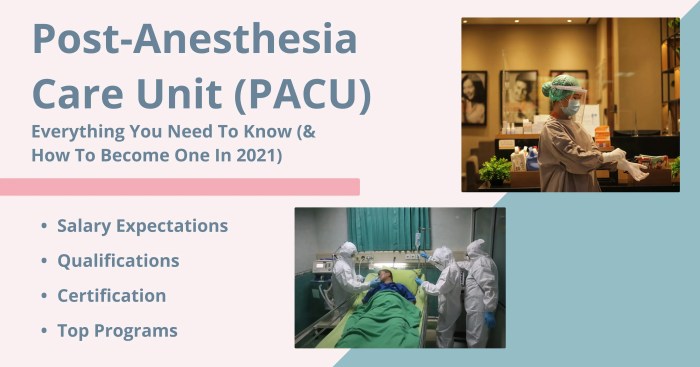Nurse hates working in pacu – Nurses working in the Post-Anesthesia Care Unit (PACU) face unique challenges and stressors that can make their jobs extremely demanding. This article explores the reasons why some nurses hate working in PACU, including the fast-paced environment, the emotional toll of caring for critically ill patients, and the limited opportunities for professional growth.
The fast-paced and demanding nature of the PACU environment can be overwhelming for some nurses. They may be responsible for monitoring multiple patients at once, managing pain and other symptoms, and coordinating care with other healthcare professionals. This can lead to long hours, irregular shifts, and heavy workloads, which can take a toll on their physical and mental health.
Work Environment
Nurses working in the Post-Anesthesia Care Unit (PACU) face a unique set of challenges and stressors that stem from the fast-paced and demanding nature of the environment. The PACU is responsible for providing immediate post-operative care to patients recovering from anesthesia, which requires a high level of vigilance, quick decision-making, and the ability to handle multiple tasks simultaneously.
One of the biggest challenges in the PACU is the potential for long hours, irregular shifts, and heavy workloads. The PACU is often understaffed, which can lead to nurses having to work overtime or take on extra shifts. This can take a toll on their physical and mental health, as well as their work-life balance.
Stressors
- Fast-paced environment
- High patient acuity
- Unpredictable patient conditions
- Frequent interruptions
- Lack of control over workload
Patient Interactions: Nurse Hates Working In Pacu

Caring for critically ill patients in the PACU can take an emotional and psychological toll on nurses. Witnessing patients in pain, distress, and vulnerable states can be challenging, and nurses must navigate these interactions with compassion and empathy.
Managing Pain and Anxiety, Nurse hates working in pacu
One of the primary challenges in the PACU is managing patients’ pain and anxiety. These patients may have undergone major surgeries or procedures, leaving them in significant discomfort. Nurses must assess and respond promptly to pain levels, administering appropriate medications and providing non-pharmacological pain management techniques.
Effective Communication and Empathy
Effective communication is crucial in nurse-patient interactions in the PACU. Nurses must clearly explain procedures, medications, and expected outcomes to patients. They must also be attentive listeners, providing emotional support and reassurance to patients who may be anxious or disoriented.
Psychological Impact
Caring for critically ill patients can have a psychological impact on nurses. Repeated exposure to trauma, suffering, and death can lead to emotional exhaustion, compassion fatigue, and even post-traumatic stress disorder (PTSD). Nurses must practice self-care strategies, seek support from colleagues and supervisors, and utilize available resources to mitigate the potential psychological effects of their work.
Interdisciplinary Collaboration

In the PACU, teamwork and collaboration among nurses, physicians, and other healthcare professionals are crucial for providing optimal patient care. Effective coordination and communication ensure smooth patient flow, timely interventions, and a positive recovery experience.
However, coordinating care and managing patient flow can be challenging due to the dynamic and often unpredictable nature of the PACU. Different healthcare providers may have varying perspectives and priorities, which can lead to communication breakdowns and potential delays in patient care.
Strategies for Effective Collaboration
- Establish Clear Communication Channels:Define specific communication protocols, such as designated team huddles, electronic medical records (EMRs), and secure messaging platforms, to facilitate timely and accurate information exchange.
- Foster a Culture of Respect and Trust:Create an environment where all team members feel valued and respected, regardless of their role or seniority. Encourage open dialogue, active listening, and constructive feedback.
- Utilize Technology to Enhance Collaboration:Implement EMRs, patient tracking systems, and other digital tools to streamline communication, track patient progress, and improve coordination of care.
- Regularly Evaluate and Improve Processes:Conduct regular team meetings or debriefings to assess the effectiveness of current collaboration strategies and identify areas for improvement. Seek feedback from all team members and make necessary adjustments to optimize workflow and communication.
Professional Development

Nurses working in the PACU often face limited opportunities for professional growth and advancement. The highly specialized nature of the unit, coupled with its fast-paced and demanding environment, can make it challenging for nurses to develop new skills or pursue specialized training.
Even though being a nurse can be fulfilling, some nurses may find working in the post-anesthesia care unit (PACU) particularly challenging. For those looking for a more uplifting perspective, I highly recommend reading the summary of Auggie and Me . This heartwarming story highlights the importance of compassion and acceptance, reminding us that even in the most difficult of situations, there’s always room for a little bit of sunshine.
Despite the challenges of working in the PACU, nurses can find solace in the knowledge that they are making a real difference in the lives of their patients.
As a result, many nurses in the PACU find themselves in a stagnant career path, with few options for progression or advancement.
Specialized Training and Career Paths
The PACU is a highly specialized unit that requires nurses to have specific knowledge and skills. While nurses may receive some on-the-job training, there are few formal opportunities for specialized training or certification in this setting. This can make it difficult for nurses to develop the skills necessary to advance their careers or pursue leadership roles.
Emotional and Mental Health

Working in the PACU can take an emotional and mental toll on nurses. They witness patient suffering, trauma, and death on a regular basis, which can lead to feelings of stress, anxiety, and burnout.
The constant exposure to these stressors can have a negative impact on nurses’ well-being. They may experience difficulty sleeping, changes in appetite, and increased irritability. In some cases, nurses may even develop post-traumatic stress disorder (PTSD).
Coping Strategies
There are a number of strategies that nurses can use to cope with the emotional demands of the job. These include:
- Talking to a therapist or counselor
- Practicing self-care, such as exercise, meditation, and getting enough sleep
- Connecting with other nurses who understand the challenges of the job
- Seeking support from family and friends
- Setting realistic expectations for themselves
By implementing these strategies, nurses can help to protect their emotional and mental health and continue to provide high-quality care to their patients.
Question Bank
What are the biggest challenges of working in the PACU?
The biggest challenges of working in the PACU include the fast-paced environment, the emotional toll of caring for critically ill patients, and the limited opportunities for professional growth.
What can nurses do to cope with the challenges of working in the PACU?
Nurses can cope with the challenges of working in the PACU by building a strong support system, practicing self-care, and seeking out opportunities for professional development.
What are the benefits of working in the PACU?
The benefits of working in the PACU include the opportunity to make a real difference in the lives of patients, the chance to work with a team of highly skilled professionals, and the opportunity to learn new skills and knowledge.